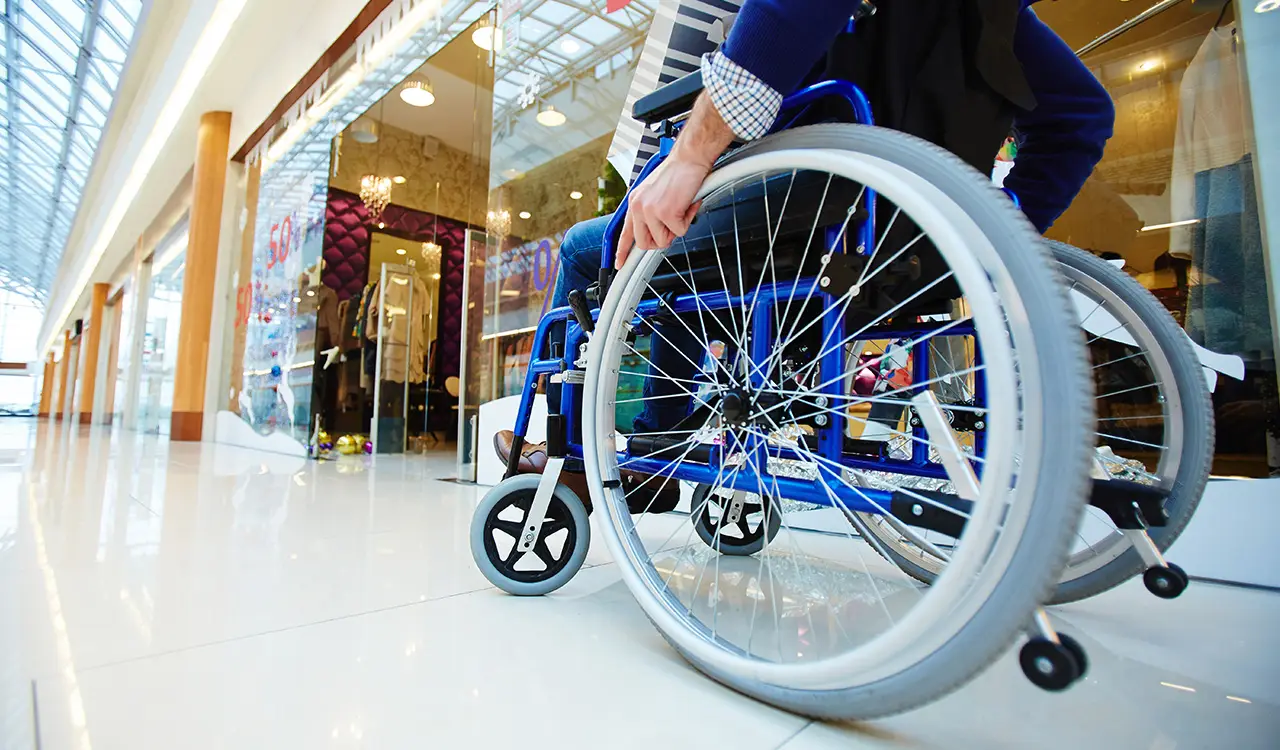In today’s diverse society, inclusivity is more than a buzzword—it’s a necessity. The World Health Organization states that an estimated 1.3 billion people experience significant disability. This represents 16 percent of the world’s population or one in six individuals. Food stores lead in inclusive retail. Embracing this principle means creating an environment where everyone, including those who are neurodiverse and have physical disabilities, can shop safely, comfortably, and independently.
Beyond in-store initiatives, food retailers are also engaging with their communities to raise awareness and educate the public about the needs and rights of individuals with disabilities. These efforts help foster a more inclusive, empathetic society and demonstrate the retailer’s commitment to social responsibility.
Around the globe, numerous food retailers are pioneers and have launched innovative programs and made structural changes to better serve individuals and families with special needs. Many of these initiatives focus on the checkout process, store navigation, ease of purchasing, a non-threatening store environment, and digital accessibility. These advancements not only foster inclusivity but also broaden the customer base, enhance brand loyalty, reflect a commitment to social responsibility, and support their local communities.
Inclusive Retail
One of the most impactful initiatives food retailers have introduced is the concept of “quiet hours.” These are designated times during which stores reduce sensory stimuli to create a more comfortable shopping environment for neurodiverse individuals with autism, other sensory sensitivities and physical disabilities including blindness and deafness. During these quiet hours, stores typically dim the lights, lower, or turn off music and public address announcements, cease stocking the aisles, and limit other potentially overwhelming stimuli.
- The British supermarket chain Sainsbury’s has implemented a “Quiet Hour” providing a calm and quiet shopping experience on Saturdays between 9:00 and 10:00 in the morning and for the first operating hour on Sundays. The chain also provided over 50,000 hours of disability awareness training for its employees. This initiative was inspired by feedback from customers and autism support organizations.
- Carrefour in France is the poster child for barriers-free shopping. It has pledged to upgrade disability access services to 50 convenience stores in Paris and 10 hypermarkets in France by summer 2024. Its newest store at Villeneuve-La-Garenne, in the northern suburbs of Paris features a disabilityreception center, shopping companion services, and specific shopping carts for people with reduced mobility. In 2023 the chain launched a call for projects targeting disability solutions. Floor guide strips enable blind or visually impaired people to move around the store more easily, as does the Oorion app, which offers visually impaired customers audible descriptions of locations within the store and its products.
Alexandre Bompard, chairman and CEO of Carrefour said at the opening of the new store that having an inclusive and disabled-accessible store is “a major priority for our group, which has made disability the major cause of its Carrefour 2026 plan and a major focus of its partnership for the Paris 2024 Olympic and Paralympic Games.” Carrefour also offers weekly quiet hours from 2:00 to 3:00 in the afternoon in more than 1,240 of its stores.
- Coles in Australia, based on the initial success of its weekly quiet hour, has expanded the offering to five evenings a week, Monday through Friday 6:00 to 7:00 in all of its stores and has additional team members available to support customers who prefer a low sensory environment while grocery shopping.
- All Walmart stores in the U.S. and Puerto Rico have sensory-free hours seven mornings a week from 8:00 to10:0 when they change their video walls to a static image, turn off the sound system, and lower the lights where possible.
Adaptive Technology and Services
The integration of adaptive technology in retail is revolutionizing the shopping experience for individuals with special needs. Many food retailers are now offering services and tools that cater to the specific needs of these customers.
Walmart back in 2019 introduced a “Voice-Activated Shopping” feature that enables customers to add items to their online shopping cart using voice commands, which can be particularly beneficial for those with disabilities. In Japan, AEON supermarkets have implemented “assistive robot shopping carts” to help customers, especially seniors with mobility impairments, navigate the store, help them find the items they want, avoid bumping into other shoppers, and the bot carts carry their groceries.
In addition to these technological advancements, some retailers are offering personalized shopping assistance. Waitrose in the UK provides a “Shop with Me” service, where staff members are available to assist customers with disabilities by helping them find products and navigate the store more easily. They created the Waitrose Digital Accessibility Community, which is dedicated to championing awareness, understanding, and an appreciation of accessibility in both in-store and online shopping experience. In all Meijer locations, the stores offer free access to Aira, an app-based service that provides live navigation assistance to blind and low-vision customers using the camera of their smartphones.
Community Engagement and Education
Beyond in-store initiatives, food retailers are also engaging with their communities to raise awareness and educate the public about the needs and rights of individuals with disabilities. These efforts help foster a more inclusive, empathetic society and demonstrate the retailer’s commitment to social responsibility.
Whole Foods Market has partnered with various disability advocacy organizations in the U.S. and Canada to host educational events for their associates to offer assistance to shoppers with disabilities in-store. These events aim to raise awareness about different disabilities and promote inclusive practices among both customers and staff. Also in Canada, Loblaw Companies Limited has launched community programs that focus on inclusivity and support for families with special needs and has been recognized by The Globe and Mail as Canada’s Best Diversity Employer for eleven years running.
Inclusive Employment Practices
Inclusive employment practices are another way food retailers are supporting individuals with special needs. By providing job opportunities to people with disabilities, these retailers not only help individuals gain valuable work experience and financial independence but also foster a more inclusive community.
One notable example is the American grocery chain, Giant Food, which has partnered with disability advocacy groups to create a more inclusive workplace and is a sponsor of Quality Trust for Individuals with Disabilities. They offer training programs tailored to individuals with disabilities, ensuring they receive the support needed to succeed. In the UK, Tesco has launched similar initiatives, working with disability organizations to create a more inclusive recruitment process and workplace environment.
Why Inclusivity Matters for All Retailers
The importance of these initiatives cannot be overstated. Creating an inclusive shopping environment is not just about complying with legal requirements or following a trend—it’s about recognizing and respecting the diverse needs of all customers. Here are several reasons why all retailers should consider implementing such programs:
- Enhancing Customer Experience. Inclusive initiatives significantly enhance the shopping experience for individuals with special needs and their families. When customers feel understood and accommodated, they are more likely to become loyal shoppers. This loyalty translates into repeat business and positive word-of-mouth recommendations.
- Expanding Market Reach. By catering to individuals with disabilities, retailers can tap into a substantial and often underserved market. By making their stores more accessible, retailers can attract and retain a wider customer base.
- Strengthening Brand Reputation. Brands that prioritize inclusivity are often viewed more favorably by consumers. Demonstrating a commitment to social responsibility and community support can enhance a retailer’s reputation and differentiate it from competitors. This positive perception can be a powerful driver of business growth.
- Compliance and Ethical Responsibility. Many countries have regulations and standards aimed at ensuring accessibility for people with disabilities. By proactively implementing inclusive practices, retailers can ensure compliance with these laws and avoid potential legal issues. Promoting inclusivity aligns with ethical business practices and corporate social responsibility.
- Fostering a Positive Work Environment. Inclusive employment practices not only benefit employees with disabilities but also create a more diverse and supportive workplace culture. This diversity can lead to a richer exchange of ideas and perspectives, ultimately driving innovation and improving overall business performance.
Doing the Right Thing
The elephant in this report is why aren’t all retailers following the lead of food retailers. The initiatives undertaken by this sector worldwide to assist individuals and families with special needs are exemplary. From quiet hours and adaptive technologies to inclusive employment practices and community engagement, these efforts demonstrate a profound commitment to people not as transactions.
All retailers need to embrace similar initiatives to benefit customers and employees. The popular adage of doing well by doing good is not a platitude. It serves one of six individuals in the community with goodwill and vital services. It also serves as a lifeline for so many people who have been marginalized by society. Inclusivity in retail is a step towards a more equitable and compassionate society, where everyone can shop with dignity, barriers free.





